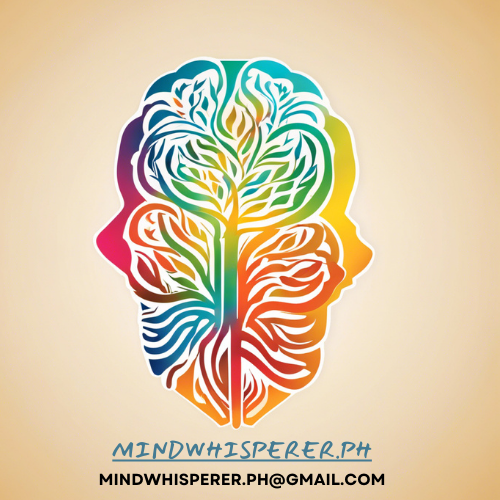Self-Help Strategies for Improving Your Mental Health Today
- Jon Pingol
- May 16, 2024
- 3 min read
Self-Help for Mental Health Improvement
This self-help course is produced for free by Mind WhispererPH. Our mission is to support and enhance mental well-being for everyone.
Thank you for being a part of our community. Let's work together to improve our mental health and support each other on this journey.
This course outline provides a comprehensive framework for individuals seeking to improve their mental health through self-help techniques. It combines educational content with practical exercises and resources to support mental well-being. Feel free to adapt and expand upon these modules to suit specific needs and preferences.
Course Overview
This self-help course is designed to empower individuals with knowledge, strategies, and resources to enhance their mental well-being. It covers essential topics such as self-awareness, mindfulness, stress management, emotional resilience, and lifestyle changes. By the end of this course, participants will have a thorough understanding of various self-help techniques and a personalized plan to maintain their mental health.
Course Objectives
Understand the basics of mental health and its importance.
Develop self-awareness and mindfulness practices.
Learn effective self-care and stress management techniques.
Build emotional resilience and coping strategies.
Implement lifestyle changes to support mental health.
Create a personalized mental health improvement plan.
Course Duration
6 weeks (self-paced)
Course Modules
Week 1: Understanding Mental Health
1.1 What is Mental Health?
Definition and importance of mental health.
Differences between mental health and mental illness.
1.2 Common Mental Health Disorders
Overview of anxiety, depression, and other common disorders.
Recognizing signs and symptoms.
Resources:
National Institute of Mental Health (NIMH)
Books: "The Anxiety and Phobia Workbook" by Edmund J. Bourne, "Feeling Good: The New Mood Therapy" by David D. Burns.
Week 2: Developing Self-Awareness
2.1 Importance of Self-Awareness
Understanding self-awareness and its role in mental health.
Techniques to enhance self-awareness.
2.2 Self-Reflection Practices
Journaling for self-discovery.
Identifying personal triggers and patterns.
Resources:
Apps: Daylio, Reflectly.
Books: "The Self-Aware Universe" by Amit Goswami, "Emotional Intelligence" by Daniel Goleman.
Week 3: Practicing Mindfulness
3.1 Introduction to Mindfulness
What is mindfulness and its benefits for mental health?
Basic mindfulness exercises.
3.2 Meditation Techniques
Guided meditation practices.
Incorporating mindfulness into daily routines.
Resources:
Apps: Headspace, Calm.
Websites: Mindful.org
Books: "Wherever You Go, There You Are" by Jon Kabat-Zinn, "The Miracle of Mindfulness" by Thich Nhat Hanh.
Week 4: Self-Care and Stress Management
4.1 Understanding Self-Care
The significance of self-care in maintaining mental health.
Different dimensions of self-care (physical, emotional, social).
4.2 Stress Management Techniques
Identifying stressors.
Techniques to manage and reduce stress (e.g., breathing exercises, progressive muscle relaxation).
Resources:
Apps: Sanvello, Breathe2Relax.
Websites: HelpGuide.org
Books: "The Stress-Proof Brain" by Melanie Greenberg, "The Relaxation and Stress Reduction Workbook" by Martha Davis.
Week 5: Building Emotional Resilience
5.1 What is Emotional Resilience?
Understanding emotional resilience and its importance.
Key characteristics of resilient individuals.
5.2 Strategies to Enhance Resilience
Positive thinking and optimism.
Developing problem-solving skills and adaptability.
Resources:
Websites: American Psychological Association (APA) Resilience Guide
Books: "Resilient" by Rick Hanson, "The Resilience Factor" by Karen Reivich and Andrew Shatté.
Week 6: Implementing Lifestyle Changes
6.1 Nutrition and Mental Health
The connection between diet and mental well-being.
Nutritional tips for better mental health.
6.2 Physical Activity and Sleep
Benefits of regular exercise for mental health.
Importance of sleep and tips for improving sleep hygiene.
Resources:
Apps: MyFitnessPal, Sleep Cycle.
Books: "The Mind-Gut Connection" by Emeran Mayer, "Why We Sleep" by Matthew Walker.
Creating a Personalized Mental Health Plan
Setting Goals: SMART goal setting for mental health.
Developing an Action Plan: Creating a detailed plan to achieve mental health goals.
Monitoring Progress: Regular self-assessments and adjustments to the plan.
Resources:
Tools: Printable goal-setting worksheets, habit trackers.
Apps: Habitica, Strides.
Additional Resources
Online Communities: Reddit’s r/mentalhealth, 7 Cups of Tea.
Helplines and Professional Support: National Suicide Prevention Lifeline (1-800-273-TALK), BetterHelp for online therapy.
Podcasts: "The Mental Illness Happy Hour," "The Hilarious World of Depression."




Comments